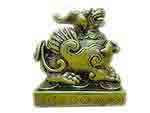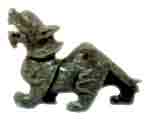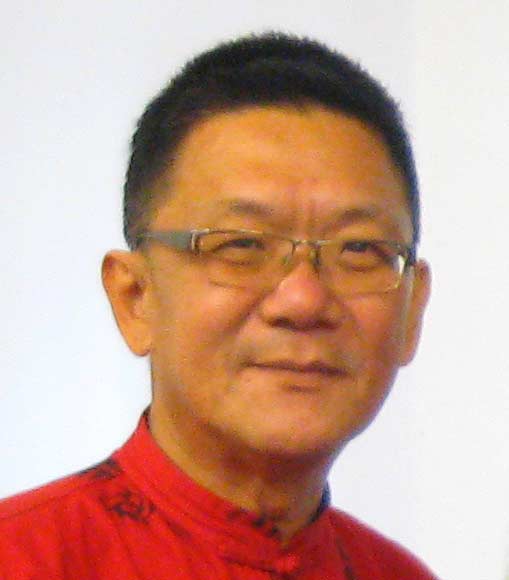|
Pi Yao
originally known as Pi Xie is a Chinese mythical creature
considered to be a very powerful protector. It resembles a
winged lion. Pi Yao is considered an influential and
auspicious creature for wealth. It is said to have an
extremely great appetite for gold and silver. Traditionally to
the Chinese, Pi Yao has always been regarded as an auspicious
creature that possessed mystical power capable of drawing
Wealth. Thus, it is helpful for those who are in need of money
luck.
Pi Yao has the head of a Fierce Chinese Dragon with protruding
eyes and sharp teeth. It has a single horn on its head, a pair
of wings and no anus. Pi Yao has a body that resembles a
Chinese lion and legs of Qilin (another Chinese mythical
creature).


Pi Yao has a big opened mouth ready to gobble up fortune but
without an anus, thus it is a great storage of wealth without
any leakage. Usually it has a big rounded stomach symbol an
unlimited storage of wealth in gold and silver.
Besides being a wealth symbol, Pi Yao was respected as it was
the pet of Tai Sui (Grand Duke Jupiter) and by displaying and
taking care of Pi Yao, appeals Tai Sui and thus reduces or
eliminate the negative or misfortune qi release by Tai Sui in
case Tai Sui is disturbed or offended.
In China, Pi Yao, were commonly displayed in ancient
architecture to ward off unfortunate Qi and to harness
auspicious Qi. The statues of a Pi Yao are commonly found on
the four corners of the roofs of grand buildings as the
imperial structures. Today, Pi Yao are commonly placed in
Chinese homes and business premises. Some placed Pi Yao at the
main entrances, while others placed Pi Yao in beautifully
crafted cabinet or low tea tables. In China and many Asian
countries, statues of PI Yao were also used as tomb guardians
in many Chinese Tombs.
• If Placed at the main entrance, it must be placed facing out
of the building to welcome wealth luck and ward off
inauspicious or evil qi. Placing at main entrances or main
door, a pair is needed.
• Usually, a pair of the Chinese Fu Dogs are more suitable for
main entrance of home. While a pair of Pi Yao are for main
entrances of large building such as business premises, temples
or government buildings. However, if the Tai Sui is located or
the main entrance is facing the direction of Tai Sui, a pair
of Pi Yao will be more appropriate.
• Displaying Pi Yao at the annual location of Tai Sui can
avoid misfortune and disasters. The location and direction of
Tai Sui changes annually. Please visit
Feng Shui tips for the
annual location and direction of Tai Sui.
• Pi Yao should be placed in a respected space. If the
afflicted area is unsuitable to place Pi Yao because it is the
bedroom or toilet, one can place Pi Yao in another suitable
space, but, make sure the Pi Yao is facing the
direction of Tai Sui of the year.
|
|
|
Disclaimer
Feng Shui is ancient wisdom handed down by our ancestors and it is a living
skill in use throughout the Orient for many centuries. To the best of our
knowledge, all information on this website are sincere representation of the
subject and makes no claim for absolute effectiveness.
The adoption and
application of the advice or information offered is solely the readers'
responsibility. 1FengShui.com and its Associates are not
responsible or liable in any manner for any loss or damages caused by
following the suggestions in our articles and services.
Copyright © 2003-2006. All Rights Reserved. No portion
of this site may be reproduced in any way without express permission
of 1FengShui.com
|
